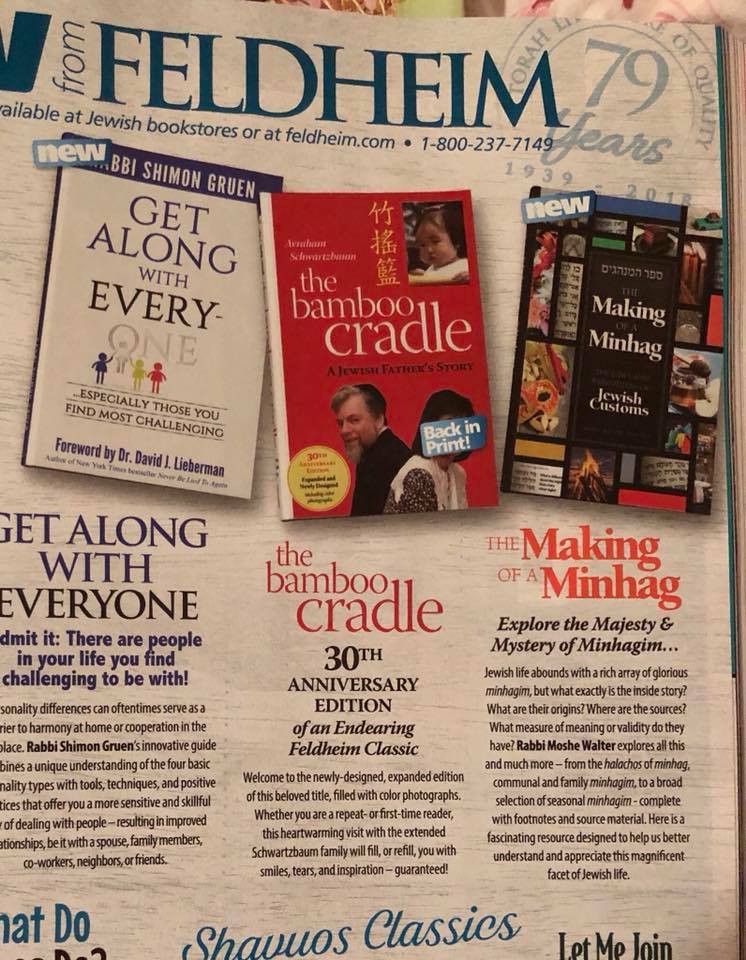 |
|
BLOG
Women’s Only Spaces And Spaces Without Women
Last night, I went to a Jewish concert by Ayelet HaShachar, a three-woman Baltimore-based band that I have been following since they began performing in 2001. Their first concert was held in Baltimore to raise funds for terror victims during the Second Intifada. One of the band members recently made aliyah, so performing together has become logistically complex. Nevertheless, over 120 women, including a nice representation of women who made aliyah from Baltimore, came to hear them perform in Jerusalem last night.
The evening opened with words of Torah, taught by two outstanding Jerusalem-area women Torah scholars – Shani Taragin and Rachelli Fraenkel.
The evening opened with words of Torah, taught by two outstanding Jerusalem-area women Torah scholars – Shani Taragin and Rachelli Fraenkel.
Ayelet HaShachar played both familiar and new music, including a song I had never heard before, based on the Hebrew prayer Nishmat Kol Chai, in which we thank Hashem for the untold number of gifts He bestows upon us at every moment. In this excerpt from an English translation, you can see the poetic power of gratitude expressed in the Nishmat prayer.
Were our mouth as full of song as the sea, and our tongue as full of joyous song as its multitude of waves, and our lips as full of praise as the breadth of the heavens, and our eyes as brilliant as the sun and the moon, and our hands as outspread as the eagles of the sky and our feet as swift as hinds -- we still could not thank You sufficiently, Hashem our God and God of our ancestors, and to bless Your Name for even one of the thousand thousand, thousands of thousands and myriad myriads of favors, miracles and wonders that you performed for our ancestors and for us.
Were our mouth as full of song as the sea, and our tongue as full of joyous song as its multitude of waves, and our lips as full of praise as the breadth of the heavens, and our eyes as brilliant as the sun and the moon, and our hands as outspread as the eagles of the sky and our feet as swift as hinds -- we still could not thank You sufficiently, Hashem our God and God of our ancestors, and to bless Your Name for even one of the thousand thousand, thousands of thousands and myriad myriads of favors, miracles and wonders that you performed for our ancestors and for us.
Ayelet HaShachar’s version of Nishmat brought me to tears. I sat there with a heart so incredibly full. I was grateful that I was in Jerusalem, a city whose name still renders me spellbound, listening to Jewish women express their souls through songs based on prayer and Biblical texts. I was grateful to be surrounded by Jewish women I knew back in the Old Country, all of us now living and contributing to life in Israel.
But there was more. I was grateful to have been a full participant in a Jewish event that was by and for women. There was no mechitza (physical divider between men and women). There was no sense that my participation was ancillary as a result of my gender, as is sometimes the case in public events in the Orthodox world. I don’t take that for granted.
I don’t know how much time liberal Jewish women spend in women’s only Jewish spaces, but there is something especially sweet about it. I’m completely comfortable participating in mixed gender spaces that are respectful to women, but women’s only spaces offer something uniquely nourishing to the soul.
But there was more. I was grateful to have been a full participant in a Jewish event that was by and for women. There was no mechitza (physical divider between men and women). There was no sense that my participation was ancillary as a result of my gender, as is sometimes the case in public events in the Orthodox world. I don’t take that for granted.
I don’t know how much time liberal Jewish women spend in women’s only Jewish spaces, but there is something especially sweet about it. I’m completely comfortable participating in mixed gender spaces that are respectful to women, but women’s only spaces offer something uniquely nourishing to the soul.
There was a second incident this week that was also significant for me as a woman, but far less pleasant. In a Facebook group devoted to the issue of certain Orthodox publications omitting pictures of women, I saw this ad.

Note that the young girl’s face which appears on the lower right of The Bamboo Cradle book cover is hidden by an icon that says “Back in Print”. I’d like to go on record as saying this is offensive and not in keeping with Jewish values.
Although it isn’t my Orthodox community’s standard, I do understand that there are Orthodox men who are careful not to look at women. However, slapping a sticker on to hide the face of a teenage girl is a complete violation of the Jewish value of kavod habriyot – basic human dignity and honoring Hashem’s creations. In Pirke Avot (Ethics of the Fathers), it is written “Ben Zoma says: Who is honored? The one who honors others.”
This is not honorable behavior.
In our generation, the status of women in Judaism (and, indeed, in the world) is in great turmoil. Paradigms are shifting every day. I pray for a world that recognizes and honors both the Divine Feminine and the unique contributions that only women can make.
We will all be better off when we have reached that stage together.
Although it isn’t my Orthodox community’s standard, I do understand that there are Orthodox men who are careful not to look at women. However, slapping a sticker on to hide the face of a teenage girl is a complete violation of the Jewish value of kavod habriyot – basic human dignity and honoring Hashem’s creations. In Pirke Avot (Ethics of the Fathers), it is written “Ben Zoma says: Who is honored? The one who honors others.”
This is not honorable behavior.
In our generation, the status of women in Judaism (and, indeed, in the world) is in great turmoil. Paradigms are shifting every day. I pray for a world that recognizes and honors both the Divine Feminine and the unique contributions that only women can make.
We will all be better off when we have reached that stage together.
---
What is the biblical and rabbinic view of the status of women in Jewish society? See answers from Orthodox, Conservative and Reform rabbis here.
If you have a question about Jewish values that you would like to ask rabbis from multiple denominations, click here to enter your question. We will ask rabbis on our panel for answers and post them. You can also search our repository of over 700 questions and answers about Jewish values.
For more great Jewish content, please subscribe in the right-hand column. Once you confirm your subscription, you'll get an email whenever new content is published to the Jewish Values Online blog.
For more great Jewish content, please subscribe in the right-hand column. Once you confirm your subscription, you'll get an email whenever new content is published to the Jewish Values Online blog.
|
|
|
Jewish Values Online
Home | Search For Answers | About | Origins | Blog Archive Copyright 2020 all rights reserved. Jewish Values Online N O T I C E
THE VIEWS EXPRESSED IN ANSWERS PROVIDED HEREIN ARE THOSE OF THE INDIVIDUAL JVO PANEL MEMBERS, AND DO NOT
NECESSARILY REFLECT OR REPRESENT THE VIEWS OF THE ORTHODOX, CONSERVATIVE OR REFORM MOVEMENTS, RESPECTIVELY. |
